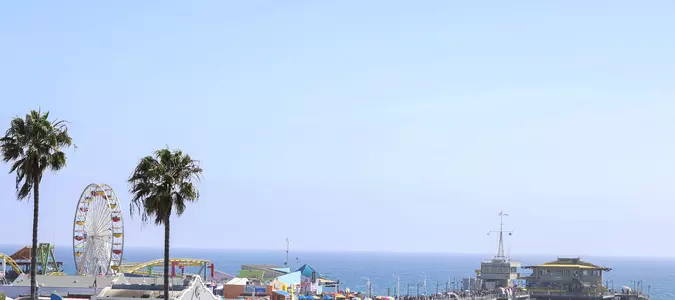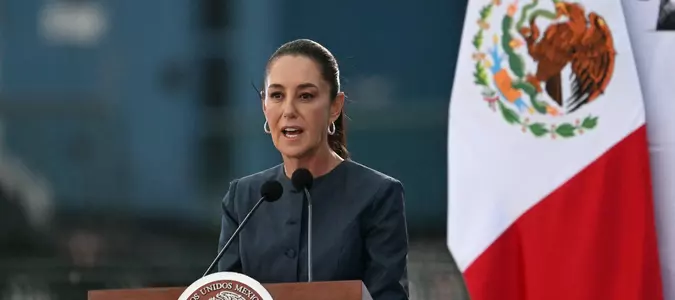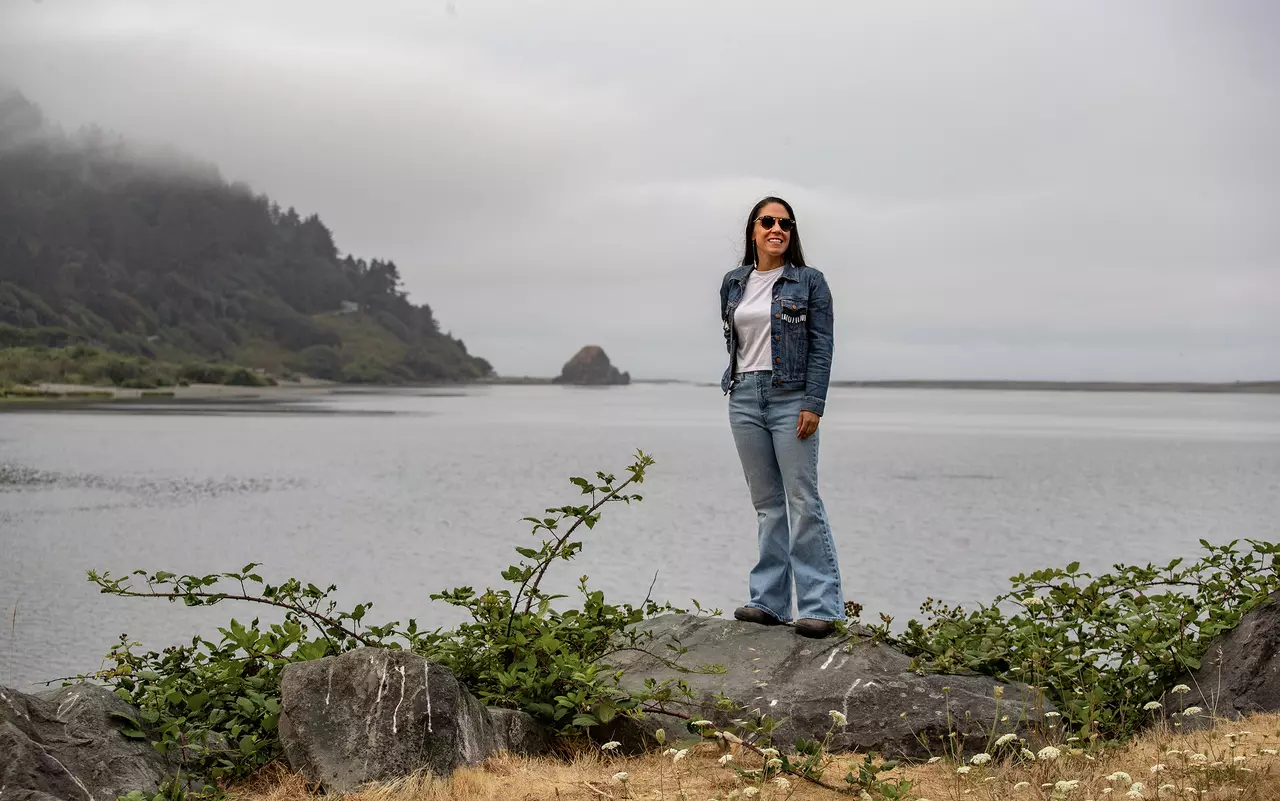

Commentary: One year after dams were torn down, an Indigenous writer sees a healing Klamath River
Over the last two years, I have traveled repeatedly to the Klamath River near the California-Oregon border to report on the dismantling of four dams. I saw crews in excavators as they clawed at the remnants of the Copco No. 1 and Iron Gate dams. And as the giant reservoirs were drained, I saw newly planted seeds taking root in soil that had been underwater for generations. When the last of the ...

Author and attorney Amy Bowers Cordalis, a member of the Yurok Tribe who leads the nonprofit Ridges to Riffles Indigenous Conservation Group, stands by a boat ramp in the village of Requa near the mouth of the Klamath River in 2023..
Brian van der Brug/Los Angeles Times/TNS
Over the last two years, I have traveled repeatedly to the Klamath River near the California-Oregon border to report on the dismantling of four dams. I saw crews in excavators as they clawed at the remnants of the Copco No. 1 and Iron Gate dams. And as the giant reservoirs were drained, I saw newly planted seeds taking root in soil that had been underwater for generations.
When the last of the dams was breached in August 2024, the river began flowing freely along about 40 miles for the first time in more than a century.
While working on a series of stories about the undamming of the Klamath, I spoke with Indigenous leaders and activists who had spent two decades campaigning for the removal of dams, including by filing lawsuits, holding protests and speaking out at meetings of utility shareholders.
I learned that the historic process of tearing down the dams was also a watershed moment in a long history of resistance by Native leaders and activists, who saw how the dams were harming the river and its salmon, and who determinedly set their sights on unshackling the waters to restore the Klamath to a healthier state.
I recently read a new book that powerfully tells a multigenerational story of resistance leading up to the removal of the dams. The book is by Amy Bowers Cordalis, a Yurok Tribe member, lawyer and environmental advocate who I first met in 2023 in her ancestral village of Rek-woi near the mouth of the Klamath River. In the book “ The Water Remembers: My Indigenous Family’s Fight to Save a River and a Way of Life,” she tells a remarkable story about how her relatives struggled for decades for their right to fish for salmon in the Klamath River, facing discrimination, raids and arrests by law enforcement officers, and even violence.
Recounting that history, she writes: “No one understood how fishing in the same place your family had been fishing forever could be illegal. It was like making breathing illegal.” Yet, there was a state law, adopted in the 1930s, that for decades prohibited Yurok people from fishing along the river. It was a fight that ultimately led to a Supreme Court decision affirming the tribe’s fishing rights, and it also laid the groundwork for years of efforts by tribal members campaigning to remove the dams.
In the book, which will be out Oct. 28, Bowers Cordalis eloquently describes her people’s deep connection to the river and the salmon, and her own experiences catching salmon, using a gillnet to haul in fish along the same stretches of river where her ancestors lived.
She was working as an intern for the Yurok Tribe’s Fisheries Department in the summer of 2002 when tens of thousands of dead salmon appeared floating in the Klamath River.
The mass fish kill became a defining event for her and others, showing the river ecosystem was gravely ill. There were multiple causes. Water diversions for agriculture had dramatically shrunk river flows that year. And the Klamath’s hydroelectric dams had degraded the water quality, contributing to toxic algae blooms and disease outbreaks among the fish.
...
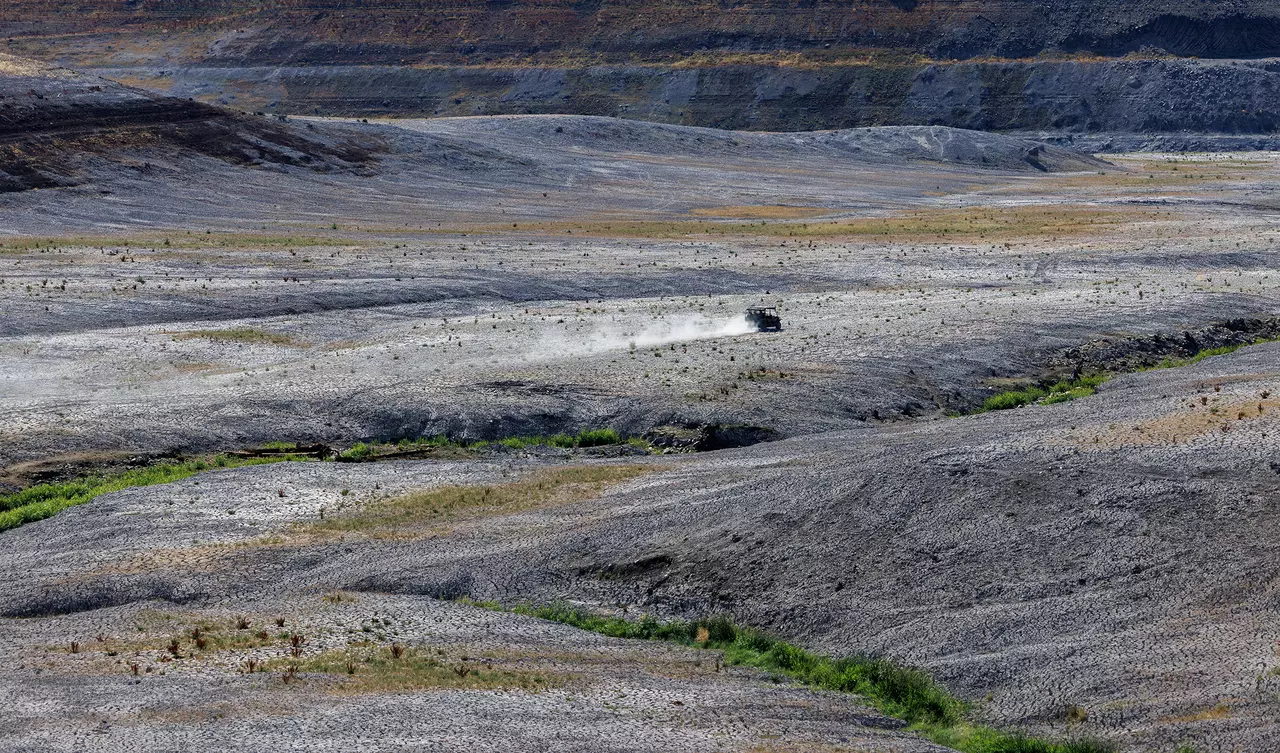
Stream restoration workers ride in a utility vehicle in August 2024 across lands that were previously underwater in a reservoir and emerged as dams were removed on the Klamath River.
Gina Ferazzi/Los Angeles Times/TNS
Bowers Cordalis writes that in response to the fish kill, she and others resolved to fight to save the salmon by restoring the river’s health.
She blamed Vice President Dick Cheney for a decision that had sent water to farmers and sapped the river. She was in her second year of law school in Colorado when then-Interior Secretary Gale Norton came to speak. Bowers Cordalis confronted her wearing a T-shirt that read “Bush Kills Fish, 70,000 Salmon Dead on the Klamath River, Yurok Reservation.”
In subsequent years, Native activists repeatedly protested to demand the removal of the hydroelectric dams, which were built without tribal consent between 1911 and 1962.
The dams were used only for power generation, not water storage. Warren Buffett’s PacifiCorp, which owned the aging dams, eventually agreed to relinquish them after determining it would be less expensive than bringing them up to current environmental standards. Agreements involving PacifiCorp, California and Oregon were negotiated to finally remove the dams.
The project, which took more than a year and involved hundreds of workers, was the largest dam removal effort in U.S. history.
Bowers Cordalis, co-founder and executive director of the nonprofit Ridges to Riffles Indigenous Conservation Group, says she is confident that dam removal will heal the river’s ecosystem, allow the fish to rebound and show that nature-based solutions work. She also writes that tearing down the dams served justice because those dams “embodied the legacy of the dark underbelly of the founding of this country that supported the industrialization of nature at the expense of Indigenous peoples, the environment and marginalized communities.”
I recently caught up with Bowers Cordalis by phone to talk about her book, the state of the Klamath River, and the salmon that have been returning to spawn in waters the dams had made inaccessible for more than a century.
“I felt deeply moved to write the book to tell the whole family’s story about all the generations that had worked to preserve Yurok culture and sovereignty, and the health of the river and salmon, and how that all built up to dam removal and this historic moment that we’re in,” Bowers Cordalis told me.
“Because it wasn’t just me, it wasn’t just this current generation that worked on that fight. It’s been building ever since colonization,” she added. “And so I wanted to be able to tell the story from my perspective and put all that history of Yurok and advocacy and the family all together into one narrative that was comprehensive and could tell the world how deeply important dam removal is, and the health of the river is, to Yurok people.”
Bowers Cordalis said she also hopes the story of tearing down these obsolete dams inspires people by showing an effective solution that is enabling a damaged ecosystem to flourish again.
“We used a nature-based solution to heal an ecosystem, and by doing so, you not only heal ecosystems, but you heal people, you heal culture and you heal economies,” she said, “I just wanted the whole world to know it’s possible, we can do it, because we need hope right now.”
...
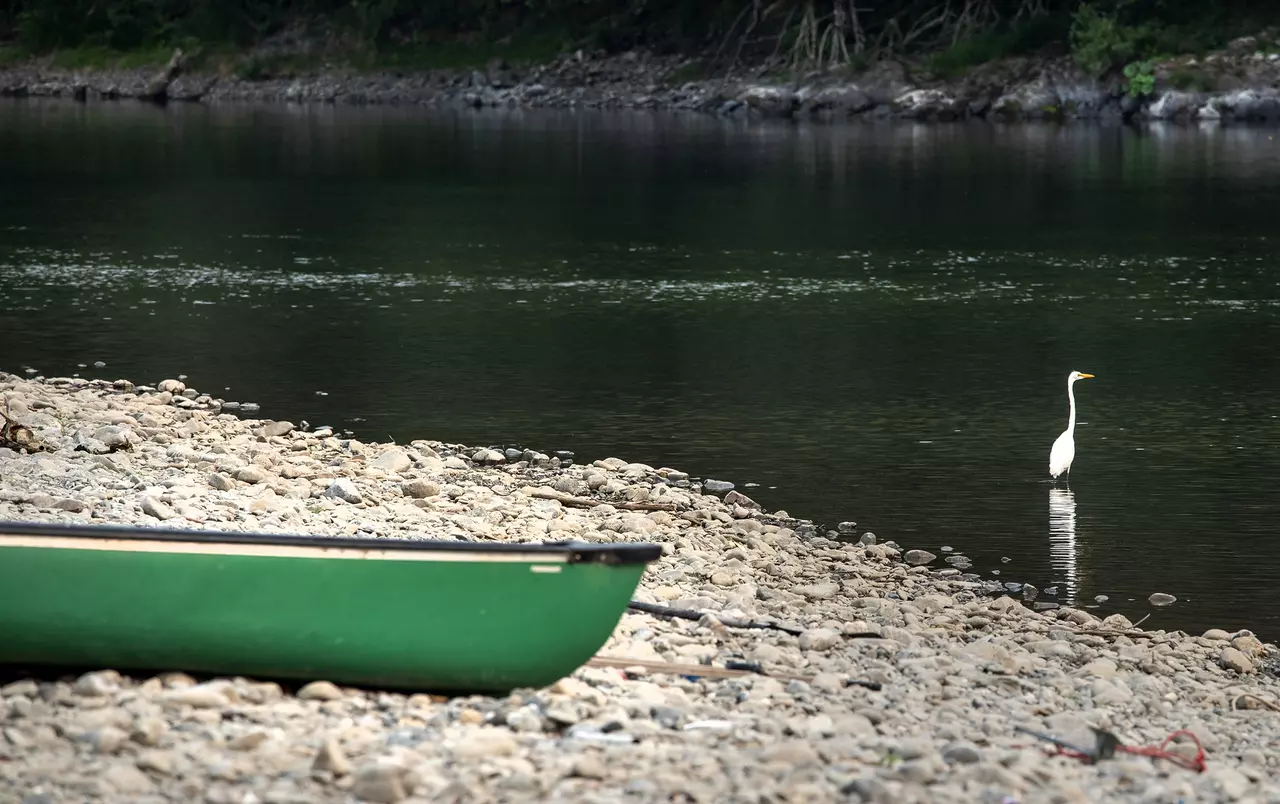
A bird stands in the Klamath River in 2023.
Brian van der Brug/Los Angeles Times/TNS
She said it’s important for people to understand how Indigenous people, after enduring a genocide and having most of their lands taken, continued to be arrested and prosecuted in the 1970s and ‘80s for fishing for salmon along the Klamath River.
“We had to fight for generations just for the right to continue our way of life. And we weren’t harming the resource. We weren’t overfishing. There was no real legal justification for us not being allowed to fish. It was just racial,” she said. “And that took a lot away from us — our means of living, the way that we had survived.”
I asked her how the river and its drained reservoirs look one year after dam removal. She said last week she saw crews at work beside a creek on the drained reservoir lands using excavators and other equipment to move earth and restore a more natural floodplain. Crews have also been scattering seeds by the millions to help bring back the native vegetation.
“They’re building salmon playgrounds and expediting Mother Nature’s healing, basically,” she said. “They’re setting all the conditions right, natural features, so that the river will heal faster and that aquatic life, vegetation will do better in those areas. So it’s phenomenal.”
This summer, Bowers Cordalis has been out on the river fishing with her family, and she is confident that in the coming years the salmon will thrive once again.
She recently joined a group of young Indigenous kayakers for part of their journey as they paddled down the river, and she was struck by how the water looked different than she had seen previously.
“It moves with this power that I have never witnessed. And also, the water is cleaner. It used to be that you couldn’t see the bottom of the river. Now you can,” she said. “It used to be that you would see a bunch of algae moving in the river, and there is still some, but not nearly as much.”
She said the water also is colder, and has lost a putrid smell of decay that had plagued the river downstream from the dams.
“I used to always say, I want my great-grandmother’s river back. And I feel like I am just getting to know my great-grandmother’s river,” she said.
Her great-grandmother Geneva was born in 1904 and died in 1986. In her childhood, Geneva had seen the river before the dams were built.
“Now, I feel like I am just now beginning to see little glimpses of what I imagine she saw: a beautiful, healthy, vibrant river,” Bowers Cordalis said.





